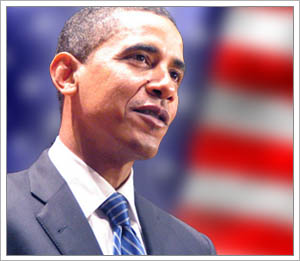
Afghanistan: The Fall of the American Empire
Under the pressure of the financial crisis, Obama's policies, such as the market rescue, have made the deficit go up continuously. The Afghanistan War, similar to the Iraq War, has become a bottomless pit that sucks in American political, economic and diplomatic resources. According to a series of public opinion polls, the number of Americans who are against the Afghanistan War is on the rise.
Before this, when Obama became president he thoroughly evaluated former President Bush's anti-terrorism strategies. He gave up the idea of a global “War on Terror.” Instead, he emphasized that “necessary military actions must be taken with limited power and in certain regions.” Obama reevaluated the anti-terrorism strategies of the U.S. in Afghanistan and Pakistan and decided to shift the overseas battle center away from Iraq to Afghanistan. The clear and focused purpose of Obama's new strategies toward Afghanistan is to destroy, breakup and smash Al-Qaeda to ensure the security of the U.S. and the international community.
Besides the huge increase of soldiers, the focal point of military actions will be shifted to the training and expansion of Afghanistan's army. During the military transition, Obama is to “utilize political, economic and societal power to eliminate the soil generated by terrorism” and to take effective actions to win the hearts of the so-called “moderates” in Afghanistan, who can bring military support to facilitate Afghanistan's peaceful process. He is also to solve these problems by strengthening the cooperation with the international community. More noticeable is that the U.S. treats the Afghanistan issue the same as border issues with Pakistan.
To carry out his ambitious new strategies, Obama has increased the number of U.S. soldiers in the country by 30,000, effectively doubling troops there. In addition, he provided $2.8 billion for the economic development and the provision of services that people depend on. Learning from the experience gained from the American troops in Iraq, tactics are being shifted from killing the Taliban military to protecting Afghanistan's civilians and making a great effort to keep in contact with tribal elders to improve the U.S.’s image and win morale.
However, it has been about half a year and the situation in Afghanistan has not changed a bit. The Taliban occupies over half of Afghanistan, having 54 percent of the country covered. Also the Taliban is active in 38 percent of the entire region. To ensure the process of the presidential election, the U.S. Marine Corps launched a “sharp sword attack” at the beginning of July and garrisoned the region where the Taliban are most active, thus signaling a change in the way the U.S. military handles executing similar tasks. But the Taliban made use of this “circuitous tactic” and attacked the eastern and northern parts of Afghanistan, causing damage to the troops of many countries.
The death toll of American troops in Afghanistan keeps breaking records; in July and August the totals were higher than any month of the previous eight years. Even the U.S. and the commander of NATO in Afghanistan Stanley McChrystal had to admit that the Taliban is in an advantageous position. In a evaluation report that he sent to the U.S. Department of Defense on Aug 31, he depicted the American troops as a bull and the Taliban as a bull-fighter, clearly admitting that the U.S.’s new strategies have not been effective yet and the U.S. must change it strategies with its alliances. Before this, on Aug 23, U.S. Admiral and Chairman of the Joint Chiefs of Staff Mike Mullen stated that the situation in Afghanistan is very serious and is worsening. The insurgency plan of the Taliban has gradually become more perfect and complicated.
The current election makes the problem more aggravated. The Karzai administration is corrupt and ineffective. It is also filled with stratocracy and conflicts of interest. Even Karzai is made fun of by the media calling him the “mayor of Kabul.” In the eyes of Afghanistan's people, he has no legitimacy. But given the accusations between Karzai and his opponent Abdullah under the background of the revival of the Taliban and racial problems, it is seemingly hard to predict what will happen to Afghanistan's weak democracy. Whether this will further intensify Afghanistan's domestic situation is yet to be observed.
Under this situation, if Obama continues to expand military, political and economic investment, he will be doing so against public opinion. Within the Democratic Party the differences of opinions will exacerbate and the party will become more passive politically. If he follows public opinion and gives up on Afghanistan, this will allow Al-Qaeda to come back and the U.S. and the rest of the world will never have peace again. It has been pointed out that the failure of the American troops in Afghanistan will most likely be the American version of the Battle of Adrianople in the year of 378. This battle was the prelude to the invasion of the Germans and the collapse of Roman Empire and has resulted in the ill fortune of Western civilization for 1,100 years!


